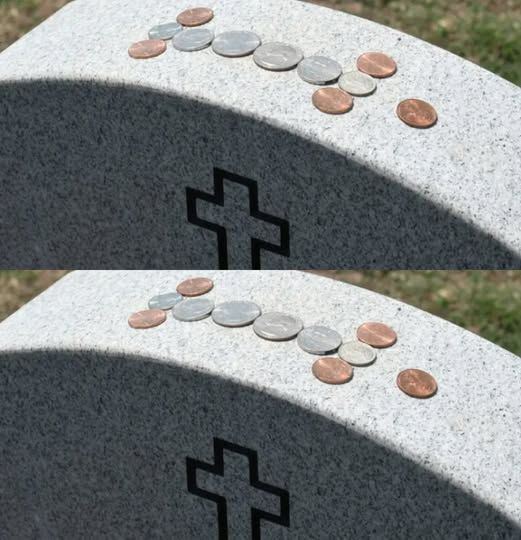Losing a loved one is never easy, and people around the world find different ways to honor those they’ve lost. One quiet yet powerful gesture is the tradition of placing coins on gravestones, especially for fallen soldiers. The exact origin of this practice is uncertain, though it may date back to the Roman Empire. It became especially meaningful during the Vietnam War, when many Americans wanted to show respect without reopening painful political wounds. Leaving a coin allowed visitors to silently acknowledge a soldier’s service and sacrifice.
Each coin carries its own message:
A penny means someone visited the grave.
A nickel shows the visitor trained with the soldier in boot camp.
A dime indicates they served together.
A quarter signifies the visitor was present when the soldier died — a deeply personal mark of remembrance.
This tradition mirrors other military customs, such as the exchange of challenge coins, which symbolize loyalty, friendship, and shared service. Like those tokens, the coins left on gravestones hold more emotional than monetary value.
Across cultures, coins have long represented connection — from offerings for the dead to symbols of luck and remembrance. Though its origins may be uncertain, this practice endures as a simple, profound tribute to those who gave everything, ensuring their service and memory live on.
